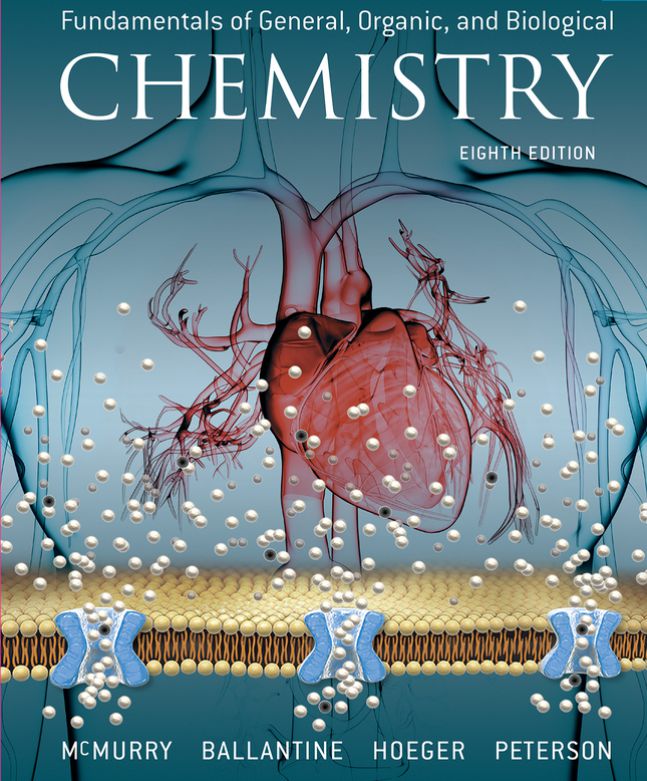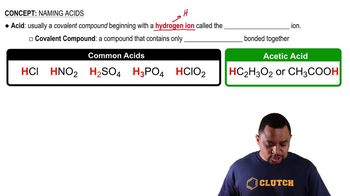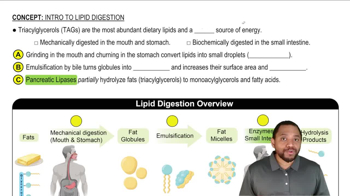Textbook Question
One strategy used in many different biochemical pathways is an initial investment of energy early on and a large payoff in energy at the end of the pathway. How is this strategy utilized in the catabolism of fats?
586
views

 Verified step by step guidance
Verified step by step guidance



One strategy used in many different biochemical pathways is an initial investment of energy early on and a large payoff in energy at the end of the pathway. How is this strategy utilized in the catabolism of fats?
Compare the differences between β oxidation and fatty acid synthesis (lipogenesis). Are these pathways the reverse of each other?
Why do lipids make you feel full for a long time after a meal?
Write the equation for the hydrolysis of a triacylglycerol composed of stearic acid, oleic acid, and linoleic acid by pancreatic lipase.
What is the origin of the triacylglycerols transported by very low-density lipoproteins?
How is cholesterol transported around the body? When it leaves the liver, what is its destination and use?